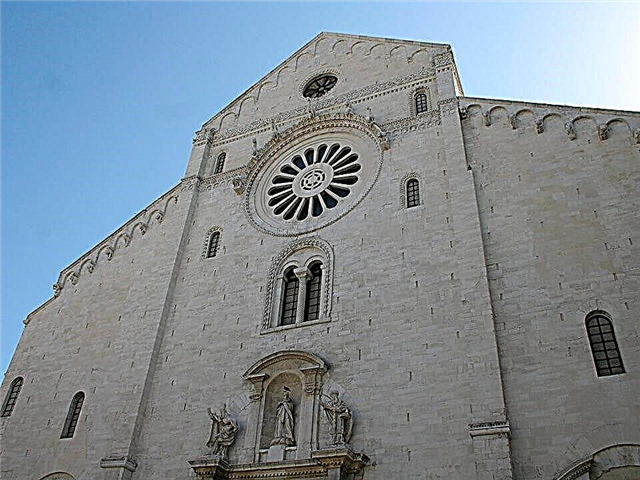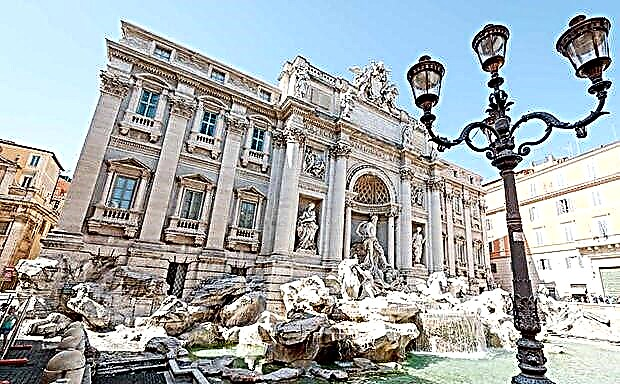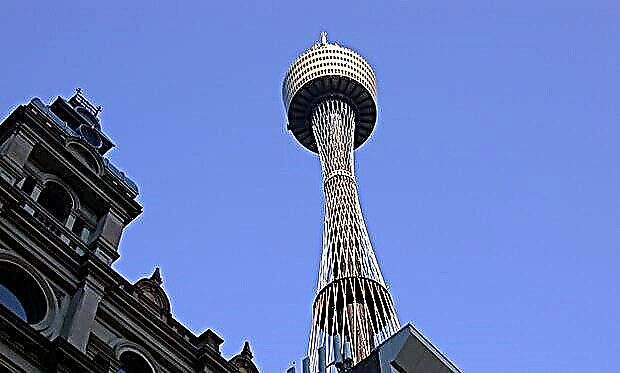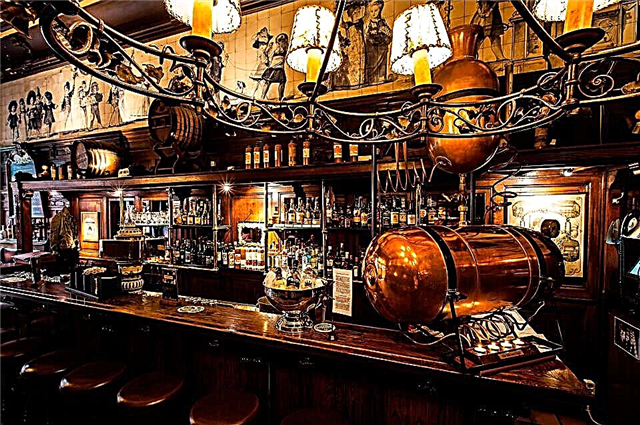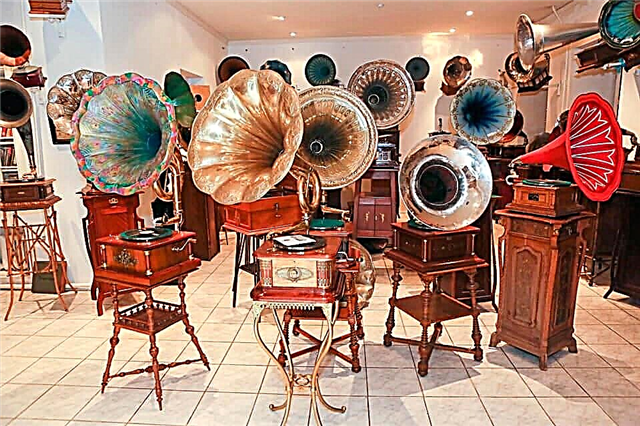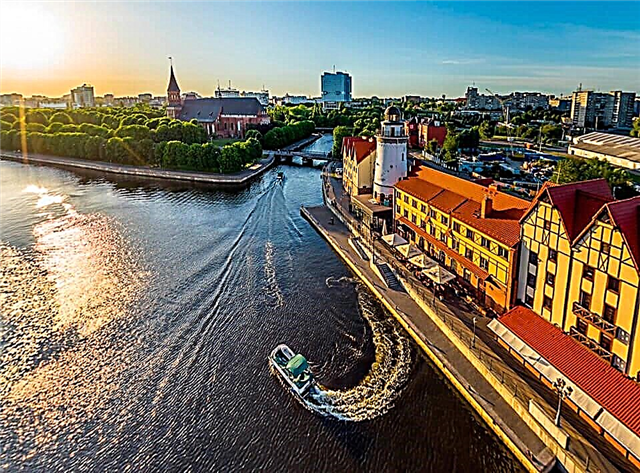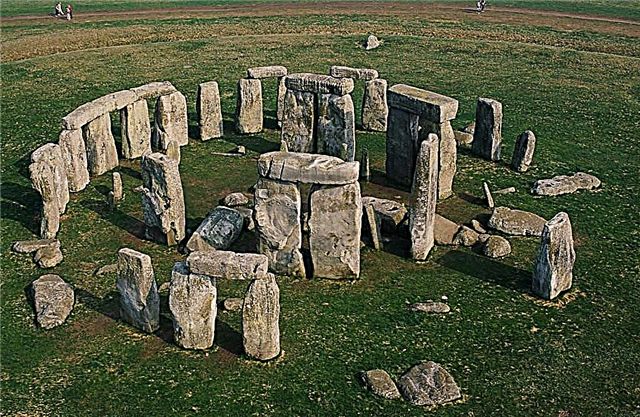London itself is unique in its beauty and number of attractions to the city. Among the concrete jungle, you can find a lot of interesting and unusual things, plunge into the ideal world of the measured life of conservative Englishmen, get imbued with one of the most ancient cultures and get a lot of new impressions. But even outside the city there is something to see. And many residents of the English capital love to spend the weekend in unusual places, which are highly recommended to visit and many tourists who happened to be in these parts by chance. We will tell you where to go from London for one day on your own
Oxford

Oxford is considered the most popular destination. To get to know this interesting place with a rich culture and ancient history, you will have to spend about an hour choosing Paddington Station as the starting point of the route. Many have heard about the University of Oxford, whose diplomas are considered the most powerful argument of an accomplished specialist. And not only on the island.
It is this educational institution that is so desirable for every Briton. But tourists don't come here for lectures at all. They are interested in interesting architecture, the similarities of which cannot be found anywhere else. Everywhere you can trace the English style and traditions of the glorious state. And in spring, landscapes are generously decorated with variegated combinations of all colors of the rainbow, which appear in the form of original flower inflorescences.

Almost all residents move around the town on foot. And all the conditions have been created for this. Walking along the flower alley or in the luxurious shade of the emerald square, you can take a break from the bustle of the city and everyday worries. Here modern life, which is actively supported by students, and the best achievements of centuries-old culture and architecture are intertwined. In addition, this particular small town boasts beautiful landscapes that are best viewed from a bird's eye view. And for this, at the service of any tourist, a huge assortment of balloons, which in the month of May almost completely cover the sky with their number.
If you find yourself in Oxford, be sure to visit the Covered Market. You can never leave this place without a souvenir. Many shops and shops, pastry shops and hat boutiques will not leave anyone indifferent. There are also museums that will appeal to art lovers. For example, Ashmola contains the works of the best artists and sculptors of the past centuries, including da Vinci, Raphael, Michelangelo. Or the Christ Church gallery, in the halls of which more than three hundred grandiose paintings and many times more sketches have found their refuge.
Cambridge

No less popular in terms of tourism is Cambridge, which can be reached in about the same time as Oxford. The local landscapes are lavishly decorated with a rich variety of daffodils, which are considered a kind of symbol of this glorious place. If you ask the locals where to go on a tour first, most will immediately point towards King's College Chapel. This real masterpiece of historical architecture is unlikely to leave anyone indifferent.
There are interesting museums in Cambridge, which we strongly recommend to all guests of the university campus. Do you want to plunge into the long history of our planet? Then welcome to the unique rooms of the Sedgwick Museum, which contains the best exhibits from the world of insects and rare minerals found in different historical eras. No less interesting will be the acquaintance with the exhibits of the Museum of Nationalities, which contains household items of people who inhabited the local area at different times.
Dover

At the same distance from the British capital, there is another attractive town for a weekend. We are talking about the port settlement of Dover, where the famous English Channel originates. By the way, it is in Dover that the oldest castle in the whole of Great Britain is located, which attracts a huge number of tourists and historians. It is about two thousand years old and can be got inside for some 17 pounds. Do not forget to visit the alabaster cliffs, which offer a phenomenal view of the strait.
Visitors are offered a 6-kilometer walk, during which you can enjoy the marvelous landscapes of rare nature. Well, if your budget allows you, you can take a wonderful trip on one of the boats. Archaeologists claim that the first settlement in this area dates back to the Stone Age, and the surroundings of modern Dover have long been at the crossroads of nomadic tribes. Even today, archaeologists find dishes and household items from the primitive British.
Canterbury

The historical path of the city (2 millennia long) has preserved many architectural sights, the first buildings of Christians. In one of the most ancient cities in England, it is proposed to look at the ruins of buildings of the Romans, a Norman castle, the Cathedral of the XII century, frozen over the ancient streets of the city and retaining the spirit of the Middle Ages. Inside the Cathedral there are burials of Henry IV, Jeanne of Navar, a gilded statue of the Black Prince (son of Edward III).
They are kept in the Trinity Chapel, located behind the altar of the Cathedral. Not far from the Cathedral are the ruins of the Abbey of St. Augustine. He converted more than 10 thousand people to Christianity (including King Ethelbert). Before the abbey appeared, he lived in the oldest church in England, St. Martin. Now it hosts marriage ceremonies by local (and not only) residents, as well as farewell to deceased people.
Walk through the ancient streets of an ancient (Belgian) settlement, admire the view of residential buildings from the Tudor period. It is suggested to see the sights of the city while walking along the streets of North Holmes Road, St. Martins Lane. Visit the Royal Museum (Gallery of Art) at the corner of High Street in St Peters Street and other places in the beautiful city of the South - East of England. It is proposed to come to the city by train or car.
Stonehenge

The mystical structure is considered the most famous archaeological site in the world. Constructions of semi-finished stone blocks (large), standing in a circle, are found in different parts of the world (they are called cromlech from crom - circle and lech - stone). Stonehenge is a UNESCO World Heritage Site and consists of 30 stones in a circle. Their average height is about 4 m, width is 2.1 m. The weight of each stone reaches 25 tons.
Above is a stone lintel in the form of a ring, assembled by the groove-in-groove method. The arc of the outer ring and 13 stones have been preserved. Within the circles were five stones (triliths) forming a horseshoe. Two of them have survived and one was restored in the 20th century. The structure had two concentric circles and an altar in their center. The time of creation, the purpose of the appearance of Stonehenge has many versions: a place of sacred rituals, a primitive astrological observatory, a burial place.
According to the customs of the Druids, it is forbidden to approach the monument closer than 15 m (this requirement is met when visiting tourists). Stonehenge is located in the town of Salisbury near London. It is proposed to come here by train from Waterloo station (then 40 minutes by bus) or by rented car.
Greenwich

One of the popular tourist destinations is the city of Greenwich. Now it is a prestigious area. On the outskirts of the capital of Great Britain there was a small settlement that became the country's “sea gate”.Now there are no majestic ships here, but various competitions in water sports are held on the water territory near the city.
Many interesting architectural structures have been preserved in a typical English town. The main attractions of Greenwich include the pedestrian tunnel under the River Thames. National Maritime Museum, Clipper (Sark "Cutty Sark), who delivered Indian tea to the country. The Naval Hospital, housed in a building that served as a palace for Charles II. A special place in the list of city attractions is occupied by the Royal Meteorological and Astronomical Observatory, created in 1674.
Through its center passes the prime meridian (the starting point of reference of the parallels connecting the poles of the earth). Worldwide recognition of this place took place in October 1884. Now the building houses the Museum of Astronomical and Navigation Devices. You can get to the area simply by metro or river tram.
Windsor

In this city, houses, streets are imbued with the atmosphere of ancient England. The Old City Center is dominated by Windsor Town Hall, built in 1687. Its architecture reminds of important events that took place here and became important historical milestones (for example, the wedding ceremony of the son of Elizabeth II Charles with Camilla Parker Bowles).
Windsor Castle rises over the city as a permanent guardian of power. Its medieval appearance, created during the life of Henry IV, has survived after the 1992 reconstruction. The castle is the property of the kings of England. During the excursion (access to tourists is possible during the absence of members of the royal dynasty in the castle), it is proposed to see the public reception room, the royal chambers, a gallery of the works of great painters.
Go to the tomb of the monarchs, located in the chapel of St. George. While walking around the city, it is useful to walk in a beautiful park, look at the "Gnarled House" or come to the Legoland amusement park. On its territory there are models built from children's cubes in the form of exact copies of famous European cities. You can get to the city by train from Waterloo stations to Windsor & Eton Riverside and Paddington stations. Or take a bus, rented car, taxi.
Stratford-upon-Avon

A small trading city appeared during the time of medieval England. It is known all over the world as the birthplace of the famous William Shakespeare. The best acting forces in the country stage his immortal productions in three theaters owned by the Royal Shakespeare Society. On the banks of the river stands a massive red theater building. He began to work in 1952.
Among the preserved monuments of the small historical center of the city (above the Avon River), the building of a golden-gray church rises. It contains the ashes of Shakespeare, his wife, daughter, son-in-law. There is a Shakespeare Museum in the city on Henley Street. According to legend, he was born and raised in this house. Nearby is the classical school created by King Edward VI.
The famous writer studied there. It is interesting to look at a unique old structure: a house with a protruding upper floor. It was where Shakespeare's daughter lived with her husband, a doctor. Now it offers to see the exposition of medical instruments of the past. There is a railway in the city. High-speed trains (Marylbon Station) are on the way for about 2.5 hours. By car on the M40 highway, a distance of about 165 km takes approximately 2 hours.
Bath

The city is a famous thermal resort of the country (translated as "bath"). The Celts were already familiar with the beneficial effects of earthly sources. Bath owes its rapid growth to the Romans, who did not build fortresses and prisons in it, but created a place for rest and entertainment. Gradually, next to the unique bathing complex on the banks of the Avon River, a city grew, which received a second wind during the reign of Queen Anne. It was considered the informal capital of England throughout the 18th and 19th centuries.
The main attractions of Bath are the "Circus", "Royal Crescent". The image of the "Circus" (a large square surrounded by three curved buildings) embodies the image of the Colosseum. The facades of the buildings are decorated with ornaments and columns. Sculptural elements in the form of cones located on the edge of the roof. It is proposed to go to the "Royal Crescent" along one of the streets starting from the square. This is a chain of 30 houses.
They form a living crescent-shaped arc in the shape of a natural amphitheater and create a sense of extraordinary spaciousness. All houses are different and make up a real architectural bouquet of the most unusual street in England. The Gothic Church of Saints Peter and Paul (one of the buildings from the famous "Abbey") has been preserved in the old town. The Reception Hall was restored in 1963 (1771). Now it houses the Museum of Costume. The distance to the city is 171 km. It is proposed to come by train, bus, car.
Seaford

The main seaport of medieval England was destroyed more than once, was burned by the French between 1350 and 1550. There are many legends about the life of the city's population. They were often called "cormorants" for their special love of attacking ships in the bay. It is said that they created fake harbors on the surrounding cliffs and lured ships aground.
The rocks, created by nature from snow-white limestone, still attract tourists from all over the planet. Shimmering white against the blue water, they are visible from afar and attract attention. "Seven Sisters" is called a unique natural monument of the preserved landscape. Unfortunately, the waters are gradually eroding the limestone. Large blocks, formed 150 million years ago, are falling down. Some of the sheer walls erode gradually and complement the beach area.
It is located in a nature reserve, you cannot come here by car. It is more convenient to look at a beautiful (and at the same time frightening) place along with excursions or play golf on a course next to a steep cliff. Moreover, a small, ancient town is located a short distance from London and is connected with it by rail.
Arundel Castle

On a hill next to the small year of Arundel, a building of impressive size rises. The appearance of the castle is associated with the victory of William the Conqueror at the Battle of Hastings. He solemnly gave land to his entourage. The main condition for the gift was the requirement to erect powerful fortresses, walls, invincible castles. Roger Montgomery (the future Earl of Arundel and William's closest friend) received a donation of land from the County of Sussex. The first building of the magnificent castle was a wooden church in 1068.
In subsequent years, other structures appeared, a stone wall. Gradually, a progressive structure for that time was formed. It was the first country house in England to have elevators, electricity and central heating. Historians say that the garden that surrounded the castle was one of the first royal gardens in the country.
For many centuries (and now) the castle has been the private property of the descendants of the Earl of Arundel and the Duke of Norfolk. It is open for tourists from March to November. The construction of the castle was the impetus for the development of the local village and the birth of a trading city. You can get to the city by rail from Victoria Station in London. The trip requires a change and lasts about 2 hours.
Hever Castle

40 km away, on the territory of the county of Kent, there is a unique castle, the history of which is connected with the birth of the great Elizabeth I. The first buildings of the castle, a moat along the fortress, a gate with a lattice (after restoration, they can now be seen) appeared here in 1270. The Boleyn family became the next owner of the castle in the 16th century. One of the daughters (Anna) brought him eternal world fame. Anna was distinguished by her intelligence, exquisite manners, and the ability to seduce.
She became the wife of King Henry, gave birth to a daughter (subsequent pregnancies ended in miscarriages and did not fulfill the king's dream of an heir).Here she was executed. Local legends tell of her ghost roaming the castle. For visiting, acquaintance with the life of Anna, the king's castle was opened only in 1963. The chateau has furniture and the walls are decorated with tapestries from the 16th century.
You can see two of Anna's true prayer books, a collection of ancient weapons in the Meeting Room. It is proposed to walk through the garden, the labyrinth, sit by the lake, admire the chess pieces made of yew, restored according to historical models. Take part in various interesting events: weddings, conferences, celebrate Christmas. You can get to the castle by train from Victoria Station.
Brighton

The provincial settlement became a popular resort after the merger with the city of Hove and received the status of a "city". Archaeological excavations confirm its ancient origin. He gained fame in the middle of the 18th century due to the healing properties of the surrounding area. Cozy beaches on the English Channel coast, warm sea breeze, cheerful night discos made it possible to forget about the problems of big, noisy cities. Even King George IV rested here.
Before his arrival, the Royal Pavilion was erected. The locals called it the Taj Mahal. Now the luxurious palace is open to the public and is considered a landmark of the town. Palace Square (pier) has become a kind of amusement park and open-air museum. There are various attractions, swings, trampolines, cozy cafes.
Brighton's maritime history includes the world's oldest aquarium, built in 1872, an area with rare plants and animals from the tropics. Of particular interest is a visit to the Globalls club. Here you can play golf in the twilight, surrounded by fluorescent figures of dinosaurs, the inhabitants of the jungle. For 1 day, it is proposed to visit the observation tower, look at the Temple of St. Nicholas, built in 1882, the Clock Tower. Brighton can be reached by train from St Pancras Station or by car.
Bibury

The settlement is called a small town or the most beautiful village in the country. She gained popularity among tourists after placing her image on the page of the national passport. And this is no coincidence: beautiful lawns decorated with numerous flower beds, houses made of dark-colored stone represent a typical landscape of the villages of England. The main inhabitants of the village were weavers. Their houses were built of limestone in the 17th century.
Wool was dried near them after washing and delivered for felting to other cities. Archaeological research suggests the existence of a Roman villa on this site. In the land census lists of 1085-1086, the village is referred to as Becheberie. On the territory, there is a large building of Bibury Court, built in the style of Jacobin architecture in 1633. In the Church of St. Mary (its history begins in the 8th century), wedding ceremonies are often held.
The oldest trout farm in England is considered a landmark of the town. Brown, rainbow trout has been grown there since 1902. The farm is encouraged to visit during a walk. Catch fish on your own for lunch and try it at a local restaurant. On the streets of Bibury, a pristine silence reigns, filled only with the sounds of murmuring water, rustle of foliage, singing of birds and an extraordinary scent of flowers.
The Koli River, flowing through the village, complements its beauty, creating lively scenery that has been used many times in filming. Many artists, poets come here to fill with new strength. The village is 140 km away. You can overcome it by train or car.
Isle of Wight

The largest island in Great Britain is located in the English Channel. This unique piece of land was formed during the last ice age. As a result of the action of the forces of nature, numerous dinosaur remains in Europe were exposed and became available, and interesting places appeared. These include the Culver Rocks, Needles, which extend far and end in an ancient lighthouse.
Since 1963, the island has received the status of "Territory of Outstanding Natural Beauty". The history of life on the Isle of Wight is associated with the rule of the Romans. Until now, you can see here a well-preserved Roman estate, built in the 3rd century. Particular attention is drawn to the floors of the building, made of mosaics, reflecting interesting plot compositions. The island became part of the Kingdom in the 5th century and became part of the Hampshire county. The capital of the island is Newport, which has grown along the banks of the Medina River on the site of an Anglo-Saxon village.
It houses the castle of Carisbrook with the chapel of St. Peter (which houses the Historical Museum). The residence of the monarchs of Britain is located in the palace of the city of East Coes. Since 1921, anyone can view it. The island hosts one of the most famous world competitions: the royal yacht regatta. It was first held here in 1851. The world's first radio station, created by G. Marconi in 1897, was put into operation here. The island's resorts have attracted many famous personalities at all times. It is now proposed to come here by ferry.
Liverpool

A large economic and industrial center of the country received the status of a city in 1880. Its rapid development is associated with shipbuilding, the role of an important seaport. The famous liner "Britannia" was launched from its berths, the steamer "Titanic" was assigned to Liverpool. The Albert Dock ensemble of buildings is one of the main attractions of the city and occupies a worthy place in the UNESCO heritage lists.
Built under the direction of Prince Albert, it was one of the first closed-type structures made of stone. Now it houses the Merseyside Museum (Maritime), the Art Gallery. Shops, restaurants, cafes, stock exchange. The beautiful city that has grown at the mouth of the Mersey River has become a popular center for youth culture. A musical phenomenon was born here: the Beatles. It is proposed to start a walk around the city from the Head Pier, where the symbols of the city are located: Royal Leaver Buildings, bird living.
Walk to the Liverpool Metropolitan Cathedral, the neo-Gothic Anglican cathedral (the largest building of this type in the world). See Town Hall Town Hall. Take a walk in one of the 40 green spaces of the city of Sefton Park. Taking part in a city tour, you are invited to listen to the history of the emergence of the old football clubs FC Liverpool, Everton. You can get there by train in just 2 hours.
Manchester

The city is located in the northwest of England. There was a settlement of the Celts, the Roman camp of Mancunium around 79 on the banks of the Irwell River. During the Middle Ages, it was a small trade, a town of artisans. Having become the textile center of the country, the city has grown rapidly. Architectural buildings appeared in it, which have survived to this day, despite the great destruction during the war.
The city, recreated from ruins, has become popular with tourists from many countries. During the walks, it is suggested to see the Gothic Manchester Cathedral, the Caspfield district (city park), included in the UNESCO heritage lists. The oldest Catholic Church of St. Mary (1794), the neo-Gothic style town hall. Go to the "city within the city" Sappford. The famous Lowry Gallery is located here on the waterfront. The embankment is a successful example of the transformation of old buildings of abandoned warehouses into modern architectural forms filled with new life.
The most prestigious University of Manchester operates in the large industrial, financial and cultural center of England, and a large number of museums are open. It houses one of the richest, most popular football clubs in the world, Manchester United, City. Shopping centers in Manchester (for example, Trafford Center) are said to be the most diverse in the country. The city is famous for its pubs, nightclubs, restaurants.The distance between London and Manchester is proposed to be covered by train in 2.5 hours, by bus in 5 hours or quickly by plane.
Birmingham
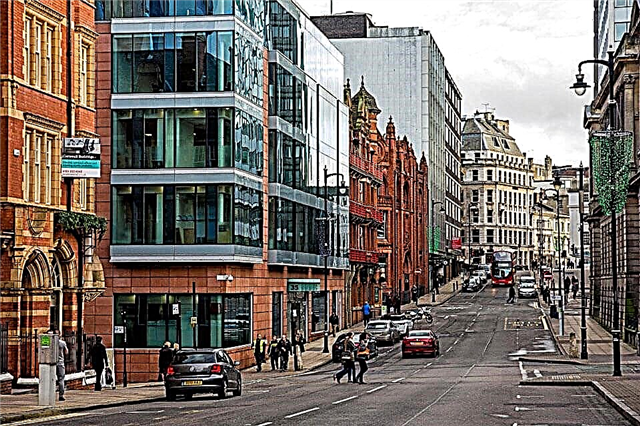
In terms of population and size, this city ranks second after London. It is called the youngest city in Europe (the average age of residents is just over 25). Once the city was considered the industrial capital not only of England, but also of the world. The centuries-old history of Birmingham is filled with thousands of discoveries in various scientific fields. Metalworking and jewelry craftsmanship were born here.
The childhood of the writer Tolkien, who gave the world the famous work "The Lord of the Rings", passed on the ancient streets. It is recommended to start your walk around the city from the central Victoria Square. A statue of the queen, reigning slightly less than the current Queen Elizabeth, adorns the square. Nearby are the Birmingham Museum, Gallery. Inside, the indescribable beauty of the interior is striking. Interactive exhibitions will introduce you to the history of the city.
Among the architectural sights, the Church of St. Martin deserves special attention, the largest library in Europe of regional importance, the oldest cinema in England, The Electric, which is currently operating. It offers to watch old retro films, modern blockbusters. The wars did not destroy the interesting Aston Hall mansion. It was built at the beginning of the 17th century.
The famous university of the country is located in Birmingham. The King Edward School of Education is world renowned. The famous striking of the Big Brama clock from Chamberlain Square can be heard throughout the central part of the city. It's easy to come to the “heart of Great Britain” from anywhere in the country. Trains from London, buses, taxis run daily.
Bristol

The largest settlement in the South-West of England appeared in 1000 in the role of the commercial port of Avon and From. The name of the city means "a place near the bridge". Having established trade with Ireland, it becomes the center of shipbuilding and is one of the four large industrial cities in the country. The convenient location of Bristol allowed it to become a port for ships from North Africa involved in the slave trade. "Live goods" were regularly delivered here.
While exploring the city, it is suggested to see the historic center of the Harborside waterfront. Warehouses, buildings have been converted into modern shopping centers, places for cultural entertainment. The embankment is decorated with a large sailboat with multi-colored flags. This is the Great Britane Steamship Museum. It can be seen above the buildings of the old docks. The expositions of an interesting museum are organized in the holds of the first propeller-driven transatlantic liner.
One of the symbols of the city is the suspension bridge, frozen over the gorge of the Avon River. It connects the village with limestone cliffs. Cathedral, Observatory, Clifton Down Cave, many other attractions in the city and its surroundings. They are visited when traveling from London by train or car.

